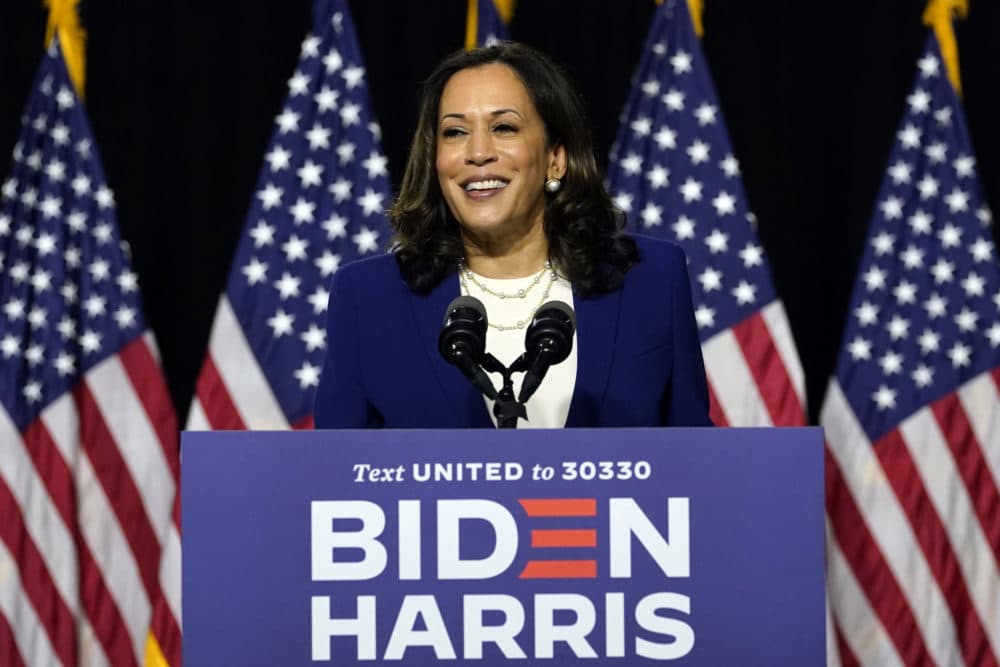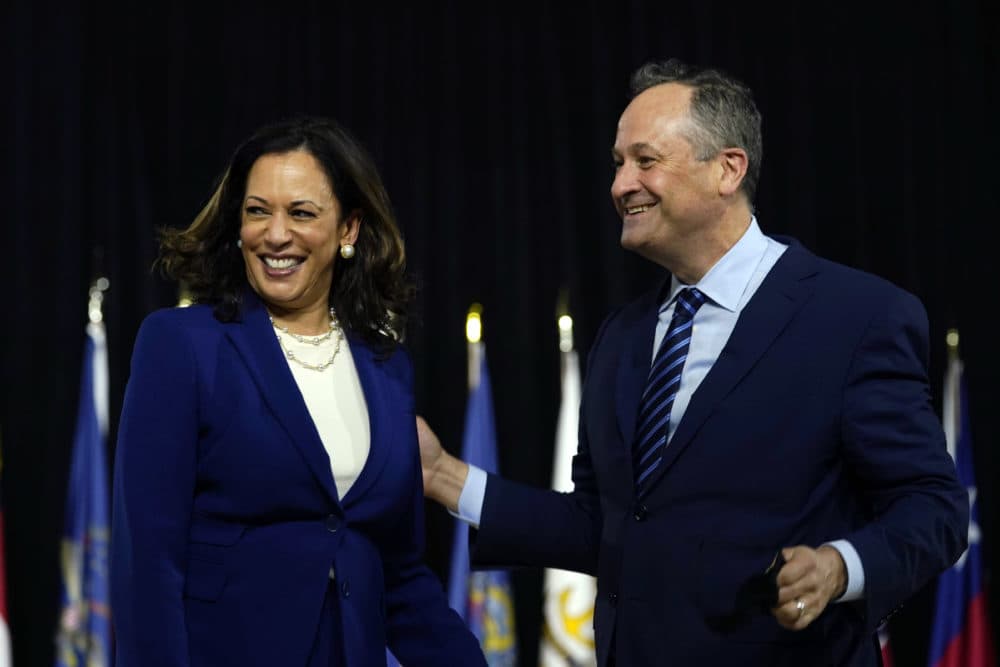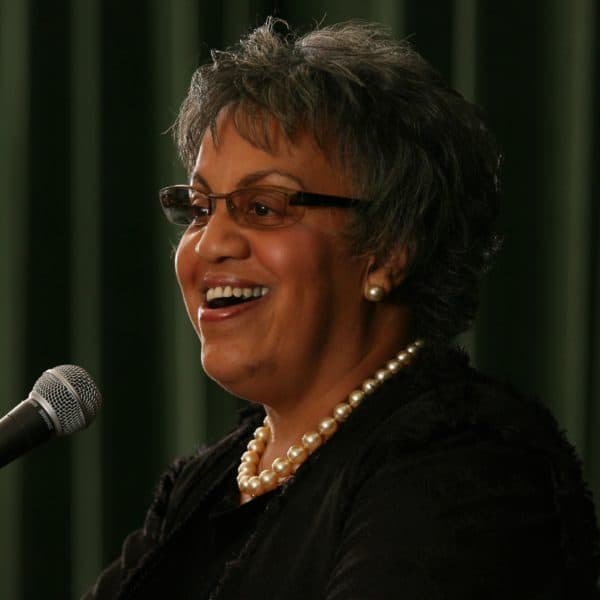Advertisement
Commentary
What Kamala Harris Shows Us About The New Generation Of Women Leaders

In choosing Sen. Kamala Harris, Joe Biden has shown that he considers both the ability to govern and the capacity for collaboration to be crucial qualities in a running mate. He views his potential vice president not as a political pawn — bringing certain skills, states or constituencies — but as a leadership powerhouse.
Those of us who study female leadership read even more into Biden’s choice: that American culture is finally beginning to recognize the dignity and respect of strong, Black women, long a stereotype but not always positive. We also see in Harris an example of qualities that research tells us are prerequisites for all successful female leaders: grit, influence and grace.
Kamala Harris is the most recent of a long line of Black heroines, from historical figures like Harriet Tubman, Shirley Chisholm and Barbara Jordan to contemporary women like Johnnetta Cole, Condoleezza Rice and Oprah Winfrey. But Harris also summons many nameless Black women who have been pillars of their communities.
Unfortunately, the strong Black woman often lodges herself in the cultural imagination as invincible but overbearing, fearless but suffocating, female but exhibiting “masculine” behaviors. The stereotypical version is often angry, even militant. (Think Angela Davis with her Afro, or Michelle Obama in fatigues on the cover of The New Yorker.)
The recent verbal assault leveled at Rep. Alexandria Ocasio-Cortez by her Republican colleague Ted Yoho reminds us that vicious biases against all women leaders persist. His “bitch,” was crude and sexist; his adjective “f------” added vulgarity.
In Kamala Harris, we see hope for a new cultural model. Less racial stereotype and more expansive archetype: courageous and charismatic, visionary with a voice — a fighter, yes, but one who does battle for the underdog.
Harris may acquaint us all with a new vision of female leadership that is taking shape in business schools, board rooms and classrooms like those at the Tuck School of Business, where one of us teaches. In the course "Leadership Out of the Box," second-year MBA students are asked to list top criteria for leaders. Rather than traditional characteristics grounded in authoritarian, militaristic, top-down models, many of these future leaders prefer characteristics of "servant leadership," such as authenticity, integrity and the ability to collaborate and inspire. Years of studying female managers and executives confirm that these characteristics are especially critical to a woman’s success.
Advertisement

Toughness is implied in grit, but there’s more. Passion and perseverance. Courage and conviction. Standing your ground. As district attorney in San Francisco, Harris earned a reputation as a legal bulldog, a tough-on-crime prosecutor, but also as a critic of the criminal justice system. On congressional committees, Sen. Harris became known for sharp and relentless questioning. And as a presidential candidate, she didn’t shy from confronting Biden, in the Miami debate, reminding him, “That little girl was me.” She has grit.
Influence is more nuanced than power. It entails cross-networking or bringing heterodox groups together. It means strategizing to resolve conflicts and analyzing multiple data sources to make sense of complex issues. An influential woman is a boundary-spanner, fluidly engaging in different landscapes. And Harris is a communication guru.
Harris’s strength as an influencer was apparent at her first presidential campaign rally, where she drew 22,000 people representing a startling mix of races, ethnicities and ages. Her senatorial track record indicates an ability to work across hostile political lines. Harris has been a forceful advocate for Black families during the novel coronavirus pandemic and a voice for criminal justice reform, delivering a powerful speech on the Senate floor against lynching and helping to draft a bill ending qualified immunity for police.
Influence also involves what we call followership. Harris shares her life story in a way that resonates with the working class, people of color, immigrants and also high-powered colleagues, like those who wrote public letters protesting what they perceived as an unfair, and sexist, treatment of vice presidential candidates. We witnessed Harris’s ability to draw followers years ago, when a young, talented, Black journalist told a gathering of graduate students that she was giving up her promising career as a reporter to work in communications for a new San Francisco district attorney who inspired her more than anyone she’d ever encountered.
Grace enables a woman to be the quiet in the storm. It merges her head and her heart. It shows all the traits of emotional intelligence that are prerequisites to astute leadership. Grace also encompasses hope. Good leaders make us feel not just powerful, but hopeful.
The stories of Harris taking time on the campaign trail to listen to children suggest graceful empathy. Her life experience has given her an understanding of what it is to be an underdog. Early in Harris’s bid to be the Democratic presidential candidate, she said she believed the United States was ready for a woman of color to be president. Against historic odds, she expressed hope.
The arc of women’s leadership over the past 50 years tells us that grit gets women in the door. Without it, they’re not players. First-generation feminists showed grit. So did early women CEOs, veteran politicos like Nancy Pelosi and newcomers like Ocasio-Cortez. Influence is what we think of as the essence of leadership — the ability to persuade other people to follow you in accomplishing meaningful things. But a new generation of women, including Harris, is showing us the value of grace for both men and women leaders.
What will be interesting to watch is whether not just grace but also vulnerability, the softer aspect of strong leadership, will be accepted alongside toughness. “We need to surround her,” Rep. Jackie Speier told the Washington Post, referring to Biden's then-unannounced VP choice and the expectation that misogynistic comments would surely greet any female candidate. “It’s our job to be the flank.”
Indeed, it may be up to women to insist that all strong leaders be allowed to express the full range of their humanity.


